35 Observation

“I like to watch…”
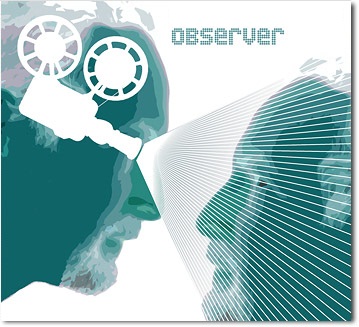
Card messages in the Illuminated position.
+ Clarity
(Witness, observer, onlooker, analyst, absorption, collector, attentive)
- Keep your eyes open and pay attention. Refrain from conclusion just yet.
- The ability to see the truth depends upon the clarity of your vision. Looking before you leap is useful to know the distance you must span. Have you seen enough to decide how to proceed? If not, look open your eyes wider.
- Get clear on the situation. Act once you see what is going on.
Quotations that Illustrate this Pole
- “All ideas come about through some sort of observation. It sparks an attitude; some object or emotion causes a reaction in the other person.” Graham Chapman
- “From the standpoint of observation, then, we must regard it as a highly probable hypothesis that the beginnings of the mental life date from as far back as the beginnings of life at large.” ~ Wilhelm Wundt
- “Ignorant people see life as either existence or non-existence, but wise men see it beyond both existence and non-existence to something that transcends them both; this is an observation of the Middle Way.” ~ Lucius Annaeus Seneca
- “It’s a great mistake, I think, to put children off with falsehoods and nonsense, when their growing powers of observation and discrimination excite in them a desire to know about things.” ~ Anne Sullivan
- “Nothing has such power to broaden the mind as the ability to investigate systematically and truly all that comes under thy observation in life.” ~ Marcus Aurelius
- “People’s minds are changed through observation and not through argument. ” ~ Will Rogers
Card messages in the Shadow position.
– Surveillance
(Spying, vicarious, invisible, disengaged, voyuer, bystander, watcher, spectator, onlooker, insular, stand-offish, covert )
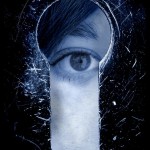
- Peeping Tom’s are voyeurs who live life vicariously through surveillance. They use stealth to spy and gain information without risking being seen. Who’s the spy? Are you being stalked?
- Spectators feed off of the actions of others. They seldom if ever get involved. Time to get into the game.
Quotations that Illustrate this Pole
- “Anarchism is founded on the observation that since few men are wise enough to rule themselves, even fewer are wise enough to rule others.” ~ Edward Abbey
- How pathetically scanty my self-knowledge is compared with, say, my knowledge of my room. There is no such thing as observation of the inner world, as there is of the outer world. Franz Kafka
- Laws and customs may be creative of vice; and should be therefore perpetually under process of observation and correction: but laws and customs cannot be creative of virtue: they may encourage and help to preserve it; but they cannot originate it. ~ Harriet Martineau
- Observation is an old man’s memory. ~ Jonathan Swift
- One man’s observation is another man’s closed book or flight of fancy. ~ Willard Van Orman Quine
Overleaf of the Michael Teaching
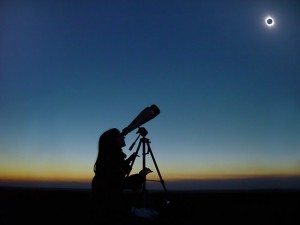 Essenses tend to like Observation Mode because it allows a person the flexibility to shift to a specific behavioral style when necessary. About half of the world population resides in the Observation mode making itself an obvious when we see the shear number of people in the world who seem like absent minded bystanders watching the world pass by.
Essenses tend to like Observation Mode because it allows a person the flexibility to shift to a specific behavioral style when necessary. About half of the world population resides in the Observation mode making itself an obvious when we see the shear number of people in the world who seem like absent minded bystanders watching the world pass by.
Often passive to act but responsive when acted upon is the very dichotomy of the Mode itself. Their is an innate tendency for not looking beyond the immediate or near term trends and thus follow the lead of those in other Modes, particularly Power, Aggression, and Passion Modes. However, we must remember that the Overleaves are a diverse mix of impulses and predilections so that anyone might vary or diverge greatly in the way an individual may appear. In the most extreme case, Observation Mode people can appear “invisible” preferring to watch than to be seen. Leaving others with the impression of something not quite being reported or being said until asked or drawn out. On the other side, when tempered with or enhanced by say Intellectual Center and Realist Attitude, it is difficult to find anyone better at reporting “the facts” in an unvarnished way.
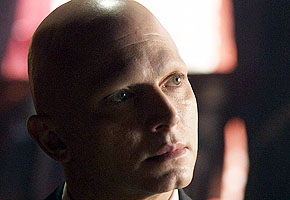
In the Michael Teaching all the Assimilative Overleaves are associated with a Scholarly or astutepoint of view. Characteristic of such people might be a monotone way of expressing themselves, not for lack of emotion, but for tendency to be moderate and measured in their output. But if you listen carefully, what can be conveyed might be the clear headed solution to whatever problem or challenge you face.
Famous People
Jeff Bridges, Mr. Spock, Gertrude Stein, Paul McCartney, Michael J. Fox, Queen Elizabeth II, Michael Caine, Carlos Castaneda, Pres. Jimmy Carter, James Taylor, John Lennon, Augustus Caesar, Mark Twain, Chevy Chase, Roger Ebert, Justin Timberlake, Jennifer Aniston, Margaret Mead, Catherine Zeta-Jones, Walter Cronkite, Switzerland, Andy Warhol, Richard Gere, Paul Gaugan, Steven Spielberg, William Shakespeare,
Cultural Meaning
“Look where you are going!” An admonition that seems sorely in need of being observed these days escapes what might be called common sense and has retreated in the face of greed, fad, fear, and arrogance. Observation has a time needed requirement to it. What appears might be readily identified, but not necessarily understood in a given context without the opportunity to ponder or continue to observe. Science thrives on long term observations to gather data and assess information about processes which ultimately provide the true knowledge we depend. While the information age (specifically the main vehicle – the Internet) pours images for us to watch and absorb, little useful digestion and comprehension of clear meaning is available at the speed at which they are conveyed.
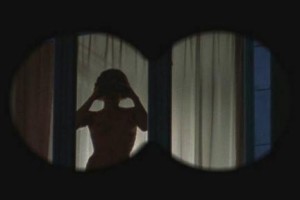 Many human beings facing the complexity and speed at which information is thrown at them have opted to become bystanders instead of players. It renders Democracy more impotent and opens the door to those whose modes, particularly Power and Aggression, dominate debates and fill the empty spaces left by those otherwise impotent and uninvolved.
Many human beings facing the complexity and speed at which information is thrown at them have opted to become bystanders instead of players. It renders Democracy more impotent and opens the door to those whose modes, particularly Power and Aggression, dominate debates and fill the empty spaces left by those otherwise impotent and uninvolved.
Yet, no where is the problem of surveillance and voyeurism so problematic as Internet pornography. Instead of risking relationships or exploring sexual fantacy, it has become an easy outlet for those afraid of being identified and labeled. The very act the voyuer commits when objectifying a person on the video screen. And let us not forget that for every voyeur there is an exhibitionist somewhere to meet the need.
You might be an Observer if…
- I usually have a “wait and see” attitude toward most events or circumstances.
- Making an immediate move is not common for me, I try to observe what is happening.
- If I cannot see in a crowd, I can experience a sort of loss or frozeness as to how to proceed.
- Some people say I don’t act fast enough because I tend to seem frozen like a deer in the headlights.
- I prefer to watch and analyze a situation and then make a choice of how to proceed.
- I wonder if I am assertive enough because when I speak people don’t seem to notice or they fade out at the sound of my voice.
- My greatest goal is to be attentive and gather all the factors that are happening in a situation.
- I relate to Chauncy Gardner in Being There, who said: “I like to watch.”
by Stephen Cocconi © 2011
For a Tarot Session or Channeled Consultation call: 209.768-4956 209.768-4956 or email Stephen at channeling@themichaelteaching.com
209.768-4956 or email Stephen at channeling@themichaelteaching.com
 209.768-4956 or email Stephen at channeling@themichaelteaching.com
209.768-4956 or email Stephen at channeling@themichaelteaching.com
